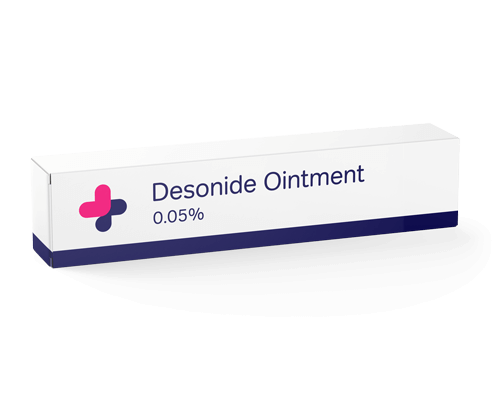What forms of Desonide are available?
Desonide also comes as a cream, lotion, foam, and gel. Other corticosteroid creams can also be used to treat eczema.
Other corticosteroids for eczema treatment
Hydrocortisone
Hydrocortisone is another corticosteroid used to treat eczema and psoriasis. It relieves redness, itching, and swelling. Hydrocortisone is available by prescription and over-the-counter as a less potent (strong) variation. It is less potent than Desonide.
Triamcinolone
Triamcinolone is another corticosteroid cream used to treat various skin conditions, including eczema, psoriasis, and poison ivy (contact dermatitis).
Clobetasol
Clobetasol is a corticosteroid available as a lotion, foam, ointment, emollient cream, gel/jelly, spray, shampoo, and solution. It works to relieve itching, swelling, redness, and general discomfort caused by skin conditions. The cream and ointment are mainly used to treat eczema, while the other forms are more specific to psoriasis. This medication is only available by prescription with a doctor's note.
Fluticasone
Fluticasone, the generic version of Cutivate and Beser, is also a corticosteroid treatment. It contains a medication called fluticasone propionate, which treats swelling, itching, redness, and irritated skin. It is normally prescribed for itching and inflammation caused by skin conditions such as eczema, psoriasis, and cutaneous lupus. It cannot be used for other skin conditions such as rosacea, acne, or other viral skin infections.

















Quick and discreet
I ordered Azithromycin tablets for chlamydia treatment, received it next day in a brown discreet pack, and cheaper than all other pharmacies, can't ask for more
Jordan McCann